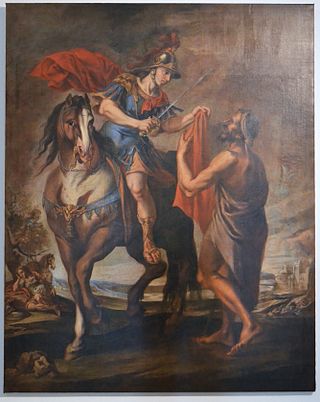Related Research Articles

Adrian is a form of the Latin given name Adrianus or Hadrianus. Its ultimate origin is most likely via the former river Adria from the Venetic and Illyrian word adur, meaning "sea" or "water".
Nacho is the common short form of the Spanish name Ignacio. The feminine form is Nacha, for the given name Ignacia.
Carlos Garcia may refer to:

Amaya o los vascos en el siglo VIII is a Romantic historical novel published in 1877 and in 1879 by Francisco Navarro-Villoslada, a noted novel by a Navarrese author. The story is placed during the invasion of Visigothic Spain by the Moors.
Jiménez is a patronymic surname of Iberian origin, first appearing in the Basque lands.
Fernández is a Spanish patronymic surname meaning "son of Fernando" of Germanic origin. The Germanic name Ferdinand that it derives from means "brave traveler." The Portuguese version of this surname is Fernandes. The Arabized version is Ibn Faranda and it was used by the Mozarabs and Muwallads in Al-Andalus. Fernández was on the list of Officers and Sailors in the First Voyage of Columbus. The name is popular in Spanish speaking countries and former colonies. The Anglicization of this surname is Fernandez.
Alberto is the Romance version of the Latinized form (Albertus) of Germanic Albert. It is used in Italian, Portuguese and Spanish. The diminutive forms are Albertito in Spain or Albertico in some parts of Latin America, Albertino in Italian as well as Tuco as a hypocorism. It derives from the name Adalberto which in turn derives from Athala and Berth.
Raul, Raúl, Raül, and Raüll are forms of a common first name in Italian, Portuguese, Romanian, Spanish, Galician, Asturian, Basque, Aragonese, and Catalan. The name is cognate of the Anglo-Germanic given name Ralph or Rudolph and the French Raoul, and is derived from Old English Rædwulf through Radulf. It is also a popular common boy name in Azerbaijan.
Mario is the Italian, French, Croatian, Spanish, Portuguese, Romanian, Bulgarian, Greek, and Nigerian English form of the Latin Roman name Marius.
Garcia, Gartzia or García is an Iberian surname common throughout Spain, Portugal, Andorra, the Americas, and the Philippines. It is a surname of patronymic origin; García was a very common first name in early medieval Iberia.

Martin may either be a given name or surname. In Scotland, Martin or McMartin is a common surname of Scottish Gaelic origin. Martin is, however, more common as a masculine given name in many languages and cultures. It comes from the Latin name Martinus, which is a late derived form of the name of the Roman god Mars, protective godhead of the Latins and, therefore, god of war. The meaning is usually rendered in reference to the god as "of Mars", or "of war/warlike" ("martial").
Ramiro is a Spanish and Portuguese name from the latinisation of the Gothic given name *𐍂𐌰𐌽𐌰𐌼𐌹𐍂 (*Ranamir). Notable people with the name include:

Osorio is a surname of Spanish, Portuguese and Basque origins. One meaning of the name is “hunter of wolves”. Notable people with this surname include:
Moreno is a Spanish, Portuguese, Catalan, French, and occasionally, an Italian surname. It may refer to:
Navarro is a Spanish and French surname. Navarro is a habitational surname denoting someone from Navarre after the Kingdom of Pamplona took on the new naming in the high Middle Ages, while also keeping its original meaning of 'Basque-speaking person' in a broader sense, an ethnic surname. Ultimately the name is derived from the Basque word naba. (Spanish) One who came from Navarro, an ancient kingdom in Spain. The surname, Navarro, was born as a nickname given to Navarre gentlemen-knights who participated in the Spanish reconquest. Besides the surname Navarro was expanded throughout Valencia.
Iker is a Basque male given name. The corresponding female name is Ikerne. It was created by the Spanish Basque writer Sabino Arana in his book Deun-Ixendegi Euzkotarra —an effort to provide neologistic Basque versions of names instead of the traditional adaptations of Romance names. The name may refer to:
Gonzalo is a Spanish masculine given name.
Amaya is a female given name and surname of Spanish, Japanese, and Arabic origins, derived from the village of Amaya and its neighboring mountain in Castile and León, Spain. The name of the village, in turn, has Indo-European roots and means "am (ma)" or "mother". The suffix io-ia is also used to form action names or toponyms, implying that the meaning of Amaya or Amaia is "mother city", as it will be called later, "the capital". Other hypothesis is that the name derived from the Proto-Basque or Basque word Amaia, meaning "the end". Variations include Amaia, Amayah, Ammaya, and Amya.
Palacios is a Spanish surname meaning palace. It is the plural form of the habitational surname Palacio. Notable people with the name include:
Manu is a given name, often derived from Manuel, and also a surname. Notable people with the name include:
References
- ↑ "Given name ASIER". Behind the Name. Retrieved 8 June 2017.
- ↑ "EODA - Search - EODA" (in Basque). Euskaltzaindia. Retrieved 14 July 2022.